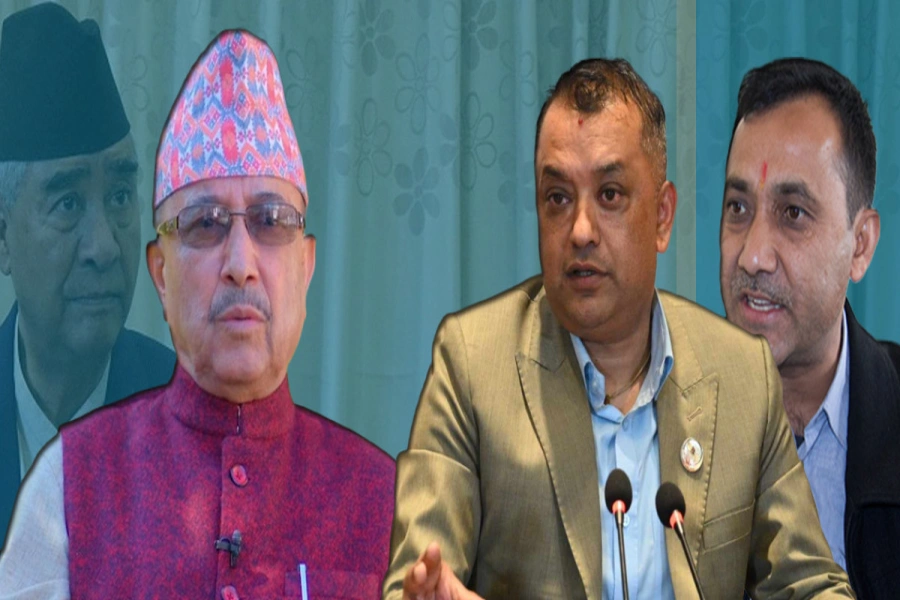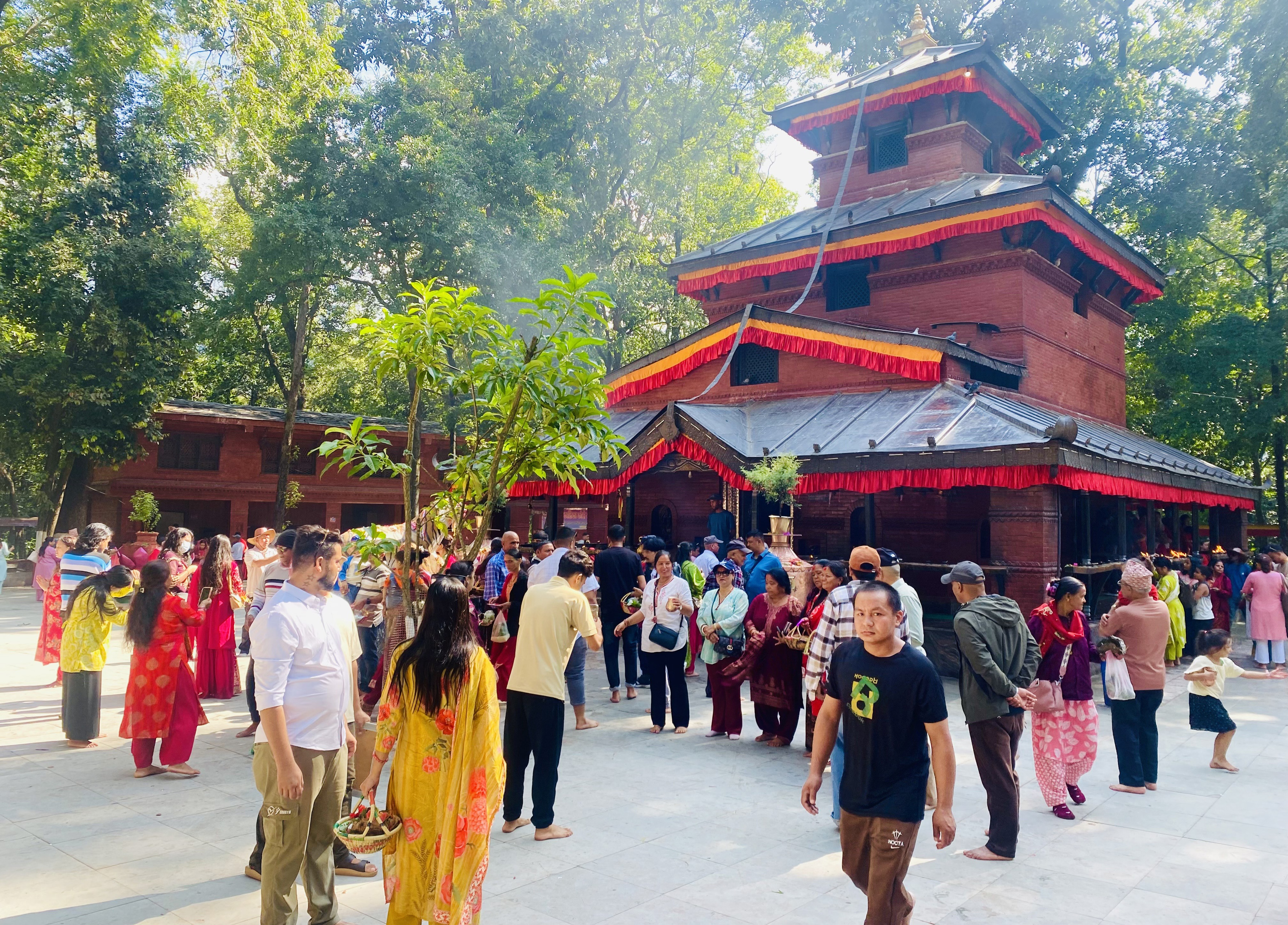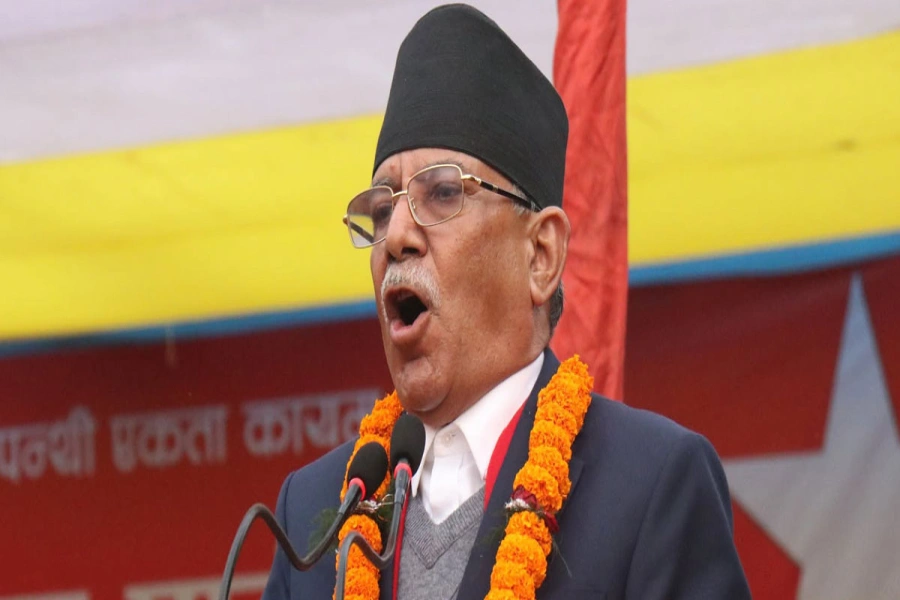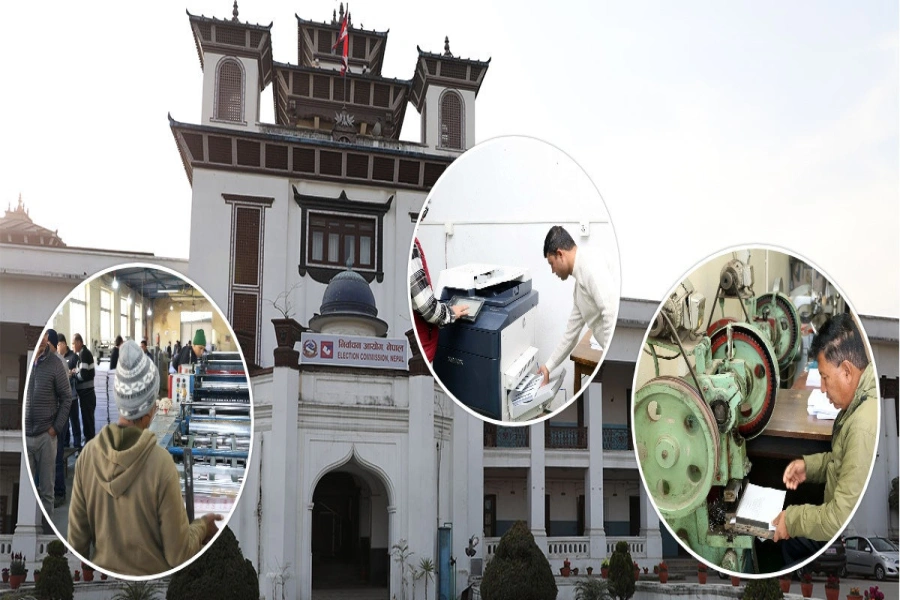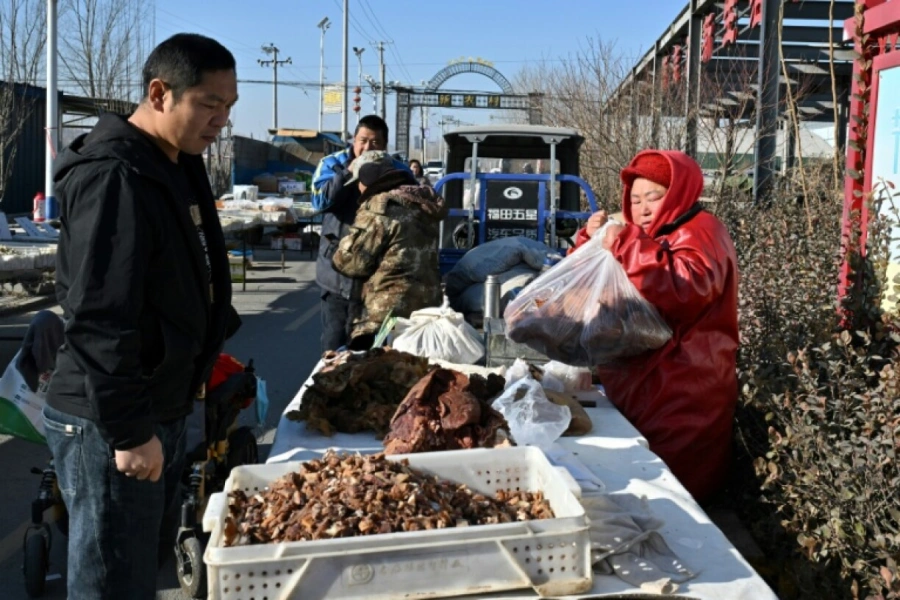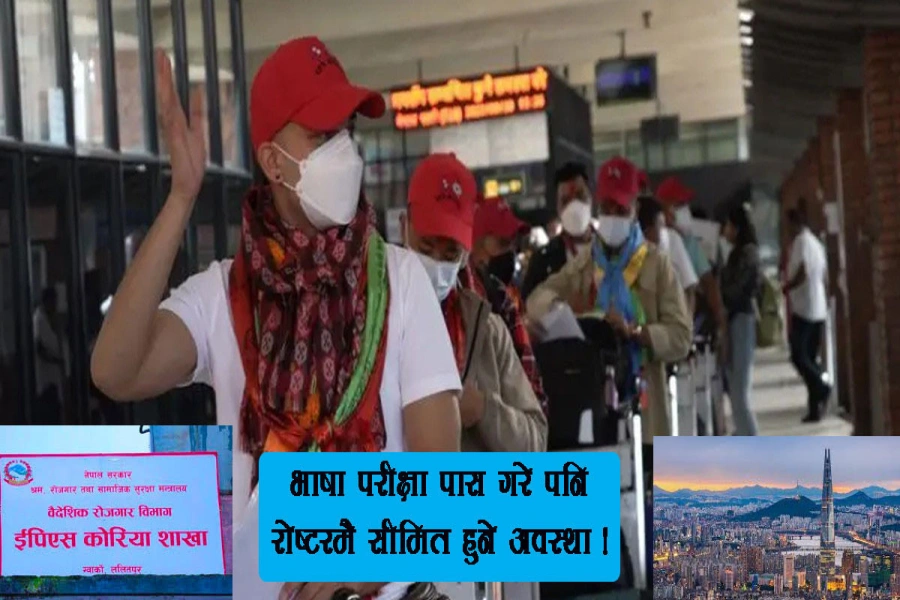The temple opens to the general public only once in a year on the day of Bhai Tika. General devotees also avail of this annual opportunity to pay obeisance to God Yamaleswar.[break]
Constructed during the rule of King Pratap Malla, this temple has been serving as a location for brothers to receive tika since ages, says priest at the temple, Harsha Narayan Pujari.
The temple is open from 5:00 am to 5:00 pm Friday.
Security personnel had to be mobilized in order to manage the huge crowd, and also considering the feeble state of the bridge leading to the temple in the middle of the pond.
Devotees throng Bhimsen Temple in Bhaktapur



